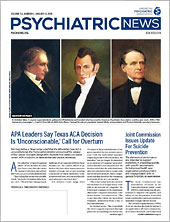Previously incarcerated transgender women can find themselves caught in a cycle of trauma, unemployment, and limited transportation that may lead to repeat jail time. A new study identifies barriers to reentry into the community and solutions that could lead to more successful reintegration for this population.
“I think we are having a moment right now where the needs of transgender people are more visible,” said Stephanie Creasy, M.P.H., project coordinator in the University of Pittsburgh Graduate School of Public Health’s Department of Behavioral and Community Health Sciences. “But visibility does not always mean equal rights or improved health and safety.”
For the small exploratory study, Creasy and colleagues conducted in-depth interviews with transgender women who had been previously incarcerated in Allegheny County for nonviolent crimes, coupled with geospatial mapping of the county’s probation offices, mental health resources, and trans-inclusive resources that serve them. The findings were presented at the American Public Health Association’s 2018 Annual Meeting in San Diego.
“Recruitment of subjects who are transgender was difficult,” Creasy said, “in part because of their lack of trust in researchers, and with good reason. Despite past research, we’re still lacking the kind of interventions, programs, and support transgender populations need.”
Individuals who are transgender are more than twice as likely to be incarcerated in their lifetimes (7 percent) compared with the general population (2.7 percent) and more likely to be required to serve their maximum sentences. In Pennsylvania, 57 percent of individuals who are transgender serve their maximum sentences, compared with 19 percent of the general population. Previous research has shown that transgender women experience higher rates of adverse childhood events, which have been associated with higher rates of incarceration.
Around one quarter of women who are transgender are living with HIV (22 percent to 28 percent), according to CDC estimates. Among black/African-American women who are transgender, more than half (56 percent) are living with HIV. For the Pitt Public Health study, half of participants were HIV-positive, and two-thirds were people of color.
The study identified transportation as a barrier to accessing services after being incarcerated. It identified Allegheny County public transportation lines, probation offices, trans-inclusive health and mental health care professionals, and job services on a map that also detailed the areas of the county with higher rates of poverty (where transgender people and previously incarcerated people are more likely to live). Researchers found that the resources didn’t align with the areas of need.
Many of the participants confirmed in interviews that transportation to work or probation meetings was difficult, Creasy said. They also had difficulty finding conveniently located health care professionals for transgender-specific needs and HIV care.
Creasy found that all but one of the county’s probation and parole offices were located in Pittsburgh itself, and the majority were central to the downtown area. None were located in or near the lower-income neighborhoods outside of the metropolitan area where several study participants lived. “Women who live outside of that one small area would have trouble getting to their required probation meetings if they didn’t have a car,” Creasy explained. “They’d also have to spend hours on the bus, transferring at least once, to get to their mental health providers or to trans-inclusive support.”
Another problem was that all of the transgender women had been housed with cisgender men while incarcerated during at least some of their sentence.
“All of them said this was a problem,” Creasy said. “They feared for their safety due to their transgender identities, and some were sexually or physically assaulted during their incarceration.” By contrast, when the transgender women had the social support of other transgender women, they reported feeling safer, less isolated, and more able to navigate the pressure of being incarcerated. “Social support during and after incarceration was the most salient protective factor described by participants,” Creasy said.
All participants said they’d experienced discrimination during job interviews and stigma and harassment from employers and coworkers because of their transgender status. As a result, many of the women participate in a survival economy, such as petty theft or sex work, which leaves them more susceptible to re-arrest and re-incarceration, Creasy said.
Participants who were connected to social support via friends, family, or community after release said they felt less likely to be re-incarcerated. “Colocating trans-inclusive resources—such as career services, support groups, and health care that includes hormone therapy and HIV clinics—could go a long way toward helping these individuals succeed post-incarceration,” Creasy said.
The study was funded by the Pitt Public Health Center for Health Equity Master’s Student Scholarship Award and the Karen S. Peterson Memorial Research Award for Women’s Health. ■
